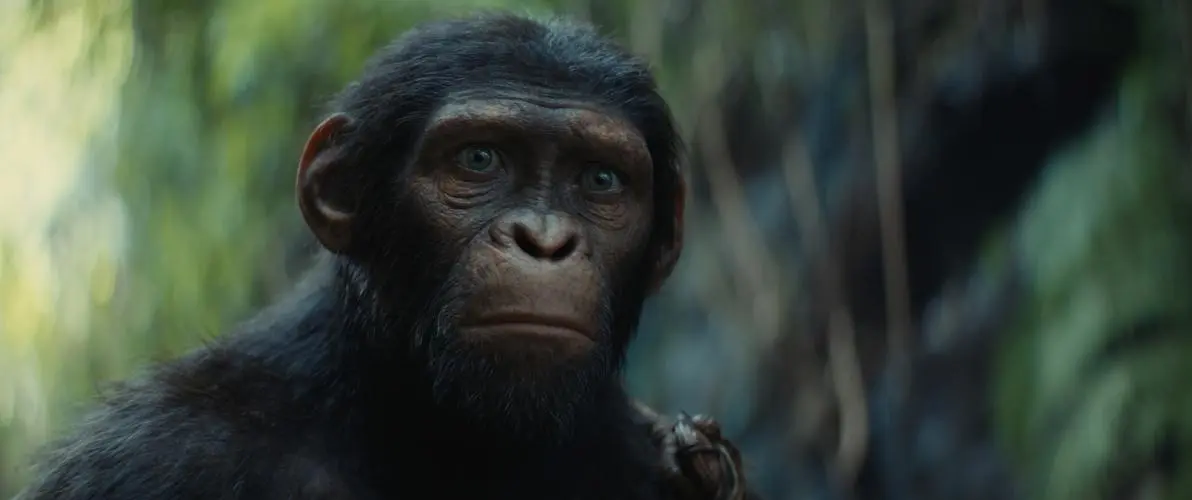The iconic “Planet of the Apes” series has once again been catapulted into the cinematic spotlight with the arrival of “Kingdom of the Planet of the Apes,” a film that not only pays homage to its predecessors but also carves out a fresh and compelling narrative. Released seven years after the trilogy that concluded with Caesar leading his kin to their promised sanctuary, this new chapter had no straightforward path to follow. Yet, it manages to exceed expectations, crafting a robust and introspective saga that centers on a uniquely simian storyline.

Set several centuries into the future, “Kingdom of the Planet of the Apes” embarks on its journey at a measured pace, introducing a completely new roster of characters and plotlines. The film’s premise, while seemingly straightforward—following the son of a conquered tribe on his quest to rescue his fellow tribesmen—gradually expands to explore broader themes and possibilities. Despite its potential for expansion, the film stands strong on its own merits, and arguably could have concluded satisfyingly without hinting at future installments.
The film industry, having seen the “Planet of the Apes” idea evolve over 56 years since Charlton Heston’s dramatic revelation in the original movie, understands that this franchise is difficult to extinguish. Now under the Disney banner, a company well-versed in managing and revitalizing film franchises, “Kingdom of the Planet of the Apes” arrives at a time when other segments of Disney’s portfolio may benefit from a boost.
In this latest installment, the narrative revolves around Noa, voiced by Owen Teague, whose tranquil life is shattered when Proximus Caesar’s forces—led by an ambitious ape portrayed by Kevin Durand—launch a deadly assault. This attack catalyzes Noa’s perilous journey, during which he meets an insightful orangutan named Raka, played by Peter Macon, and a mysterious human woman portrayed by Freya Allan from “The Witcher,” who decides to join Noa’s quest.
Wes Ball, known for his work on the “Maze Runner” series, directs this epic with a script penned by Josh Friedman. Together, they weave a rich tapestry of adventure, humor, and nods to the franchise’s origins. The film’s visual effects are particularly noteworthy, providing a realistic portrayal of its primarily digital cast, who communicate through a blend of sign language and spoken word.
“Kingdom of the Planet of the Apes” demonstrates a remarkable ability to refresh a well-known narrative, making it feel innovative without completely overhauling the essence of the original films. This installment proves that even in the realm of blockbuster cinema—often criticized for being formulaic—there is room for creativity and bold storytelling.
As the film industry continues to revisit and reimagine established stories, “Kingdom of the Planet of the Apes” stands as a testament to the potential of legacy franchises to surprise and engage contemporary audiences. Whether this leads to renewed interest in the “Planet of the Apes” universe remains to be seen, but this film undoubtedly deserves recognition for its daring venture into new cinematic territory.







